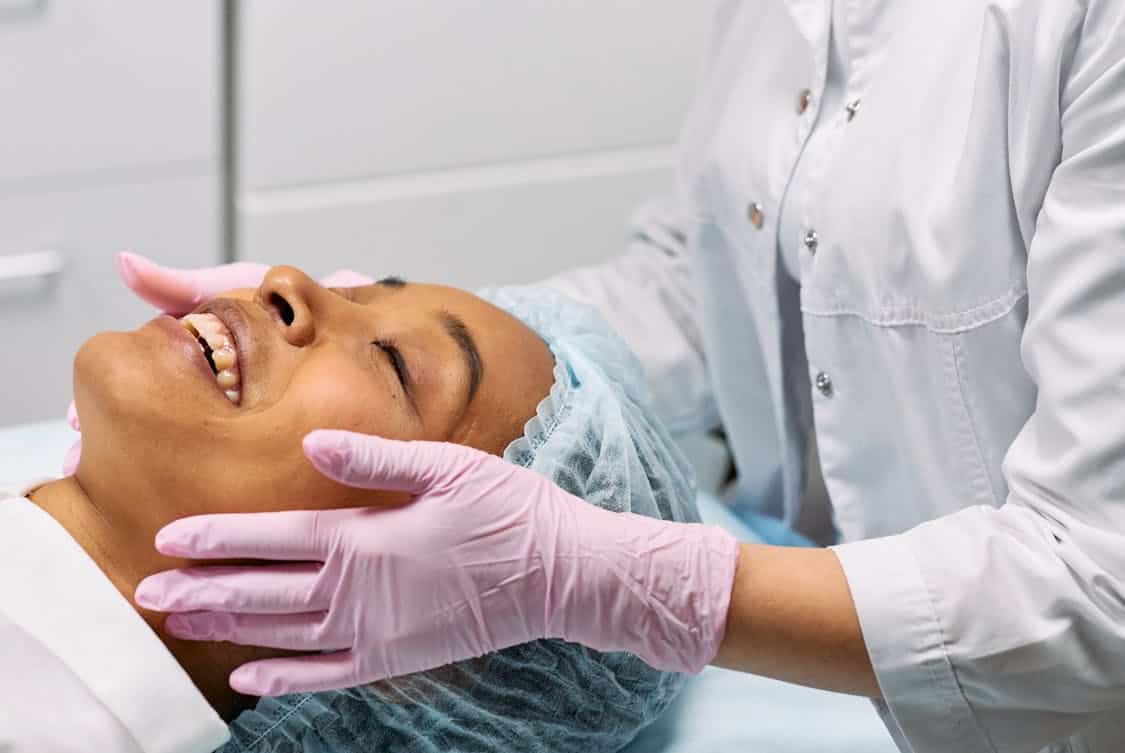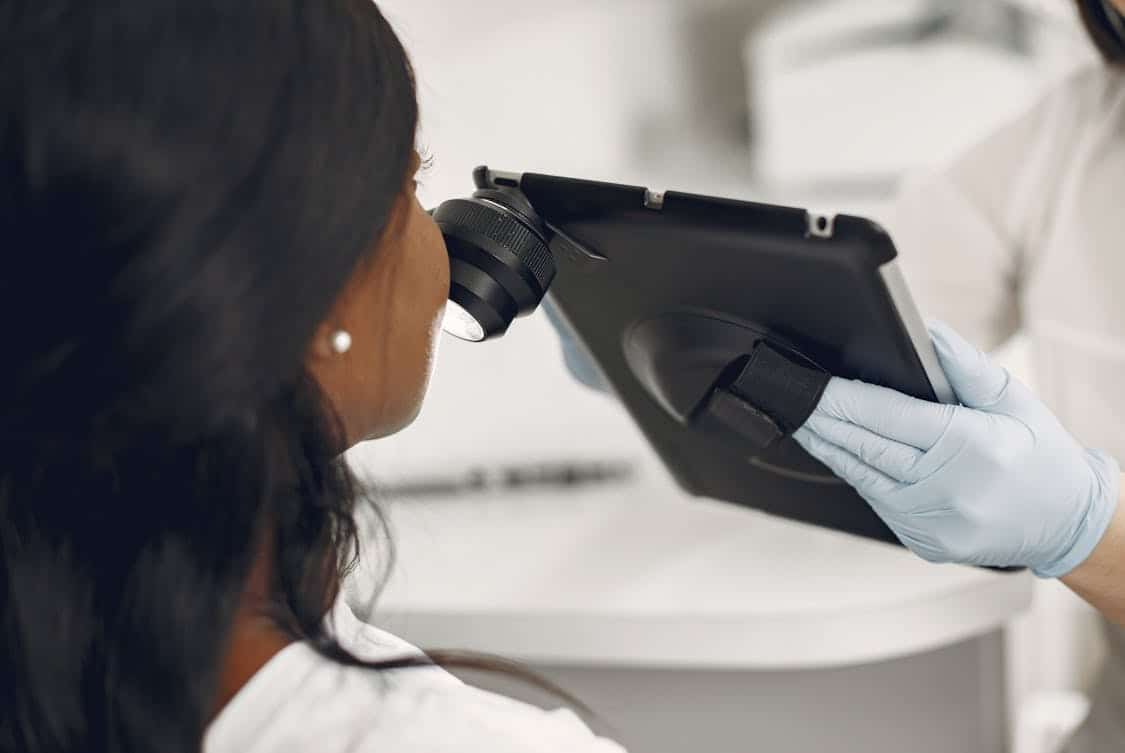Can Dermatology Services Prevent Skin Cancer? Explained

Skin cancer has become a pressing health issue, with increasing rates observed globally.
The good news? Dermatology services play a pivotal role in the prevention and early detection of this disease. Let’s break down how these services can help safeguard your skin.
Understanding Skin Cancer
Skin cancer occurs when skin cells begin to grow uncontrollably. The three primary types are basal cell carcinoma, squamous cell carcinoma, and melanoma.
Each varies in severity and risk factors. The sun’s ultraviolet (UV) radiation is a leading cause, but other elements like genetics and exposure to harmful substances also contribute.
The Role of Dermatologists
Dermatologists are specialists trained to diagnose and treat skin conditions, including skin cancer. Their expertise lies not only in treating but also in preventing skin issues.
Regular check-ups with a dermatologist can identify potential problems before they escalate. For those living locally, consulting dermatologists in Brisbane can be a practical step toward maintaining healthy skin and catching concerns early.
Regular Skin Exams
One of the most effective ways dermatology services help prevent skin cancer is through regular skin examinations. During these check-ups, dermatologists assess your skin for any unusual moles or growths.
Early detection can make a significant difference in treatment outcomes. If a suspicious area is found, a biopsy may be performed to determine if cancer is present.
Education on Skin Health
Dermatologists often provide education about skin health, emphasizing the importance of sun protection. They can advise on proper sunscreen application, the significance of reapplying it, and the type of sunscreen that best suits your skin type.
This knowledge empowers patients to take proactive measures in guarding their skin against harmful UV rays.
Sun Safety Strategies
Skin cancer prevention programs frequently highlight sun safety strategies. These include wearing protective clothing, seeking shade during peak sun hours, and avoiding tanning beds.
A dermatologist can tailor specific strategies based on individual lifestyles and skin characteristics, enhancing the effectiveness of prevention efforts.
Understanding Risk Factors
Dermatologists can help you understand your personal risk factors for skin cancer. Family history, skin type, and previous sunburns are all considerations.
By identifying these risk factors, a dermatologist can provide targeted recommendations for reducing your chances of developing skin cancer.
Use of Technology in Detection

With advances in technology, dermatology services incorporate tools like dermoscopy. This allows dermatologists to examine moles more closely, providing a clearer picture of their characteristics.
Such tools improve the accuracy of diagnoses, leading to earlier intervention when necessary.
Skin Cancer Screening Programs
Many dermatology practices offer skin cancer screening programs, which can be particularly beneficial for high-risk populations.
These programs often include comprehensive evaluations and educational resources, helping to spread awareness about the importance of early detection and regular monitoring.
Biopsy and Diagnosis
When suspicious lesions are identified, dermatologists may perform a biopsy. This process involves removing a small sample of skin tissue to be examined under a microscope.
Early diagnosis through biopsy can significantly increase the chances of successful treatment and recovery, demonstrating the critical role dermatologists play in cancer prevention.
Lifestyle Modifications
Beyond skin exams and education, dermatologists often discuss lifestyle modifications that can lower skin cancer risk.
These may include dietary recommendations, exercise tips, and guidelines for avoiding harmful substances. Adopting a healthy lifestyle can fortify your skin and overall well-being.
Community Initiatives
Many dermatology practices engage in community outreach to promote skin cancer awareness. They may organize free screening events, provide educational materials, or collaborate with local organizations to spread the word about prevention strategies.
These initiatives create a ripple effect, encouraging more people to take their skin health seriously.
The Importance of Self-Examinations
Dermatologists emphasize the significance of self-examinations between professional check-ups. By regularly inspecting your skin for any changes, you can catch potential problems early.
Knowing your skin’s baseline can help you notice any new growths or changes, prompting timely consultation with a dermatologist.
Dealing with Moles
Many people have moles, but knowing when they are cause for concern is vital. Dermatology services can guide you on how to monitor your moles for changes in size, shape, or color.
The ABCDE rule (Asymmetry, Border, Color, Diameter, and Evolving) can help you remember what to look for when examining moles.
Genetic Testing for High-Risk Individuals
For those with a strong family history of skin cancer, dermatologists may recommend genetic testing. This can identify inherited conditions that elevate cancer risk.
Understanding one’s genetic predisposition allows for more vigilant monitoring and preventive strategies.
The Psychological Aspect
Visiting a dermatologist can also ease the mental burden associated with skin cancer fears. Having a professional assess your risks and provide reassurance can alleviate anxiety.
This psychological comfort can lead to more proactive health behavior, supporting the fight against skin cancer.
Collaborating with Other Health Professionals
Dermatologists often work in tandem with other healthcare professionals to coordinate care. For instance, a primary care doctor might refer a patient to a dermatologist for specialized skin evaluation.
This collaborative approach ensures comprehensive care, addressing not just skin health but overall wellness.
Addressing Misconceptions
Many misconceptions surround skin cancer and its prevention. Dermatologists play a crucial role in debunking myths, such as the idea that only fair-skinned individuals are at risk.
By educating diverse populations about skin cancer, they help to demystify the condition and promote widespread awareness.
Finding the Right Dermatologist
Choosing a dermatologist can feel overwhelming. It’s important to find someone whose approach resonates with you. Consider factors such as experience, communication style, and patient reviews.
A good rapport with your dermatologist can enhance your comfort and encourage open discussions about skin health.
The Importance of Follow-Up
Consistency is key in skin cancer prevention. Regular follow-ups with your dermatologist are essential for monitoring skin changes over time.
These check-ups can catch early signs of trouble and provide a chance to reassess preventive strategies.
Emphasizing Individualized Care
Each person’s skin is unique, and dermatologists recognize the importance of tailored care. By considering individual risk factors and skin types, they can develop personalized prevention strategies.
This approach increases the likelihood of effectively reducing skin cancer risks.
The Link Between Lifestyle and Skin Health
The connection between lifestyle choices and skin health cannot be overstated. Diet, hydration, and stress management can all influence skin conditions.
Dermatologists often address these factors, encouraging a holistic approach to skin health that can help prevent skin cancer.
Awareness Campaigns
Awareness campaigns conducted by dermatology associations often focus on educating the public about skin cancer risks and prevention strategies. These campaigns utilize various platforms, including social media, to reach a broad audience and foster a culture of skin health awareness.
By understanding the many facets of dermatology services in preventing skin cancer, individuals can take significant strides toward protecting their skin.
Regular visits, education, and proactive measures can dramatically influence outcomes, turning the tide against this prevalent health challenge.